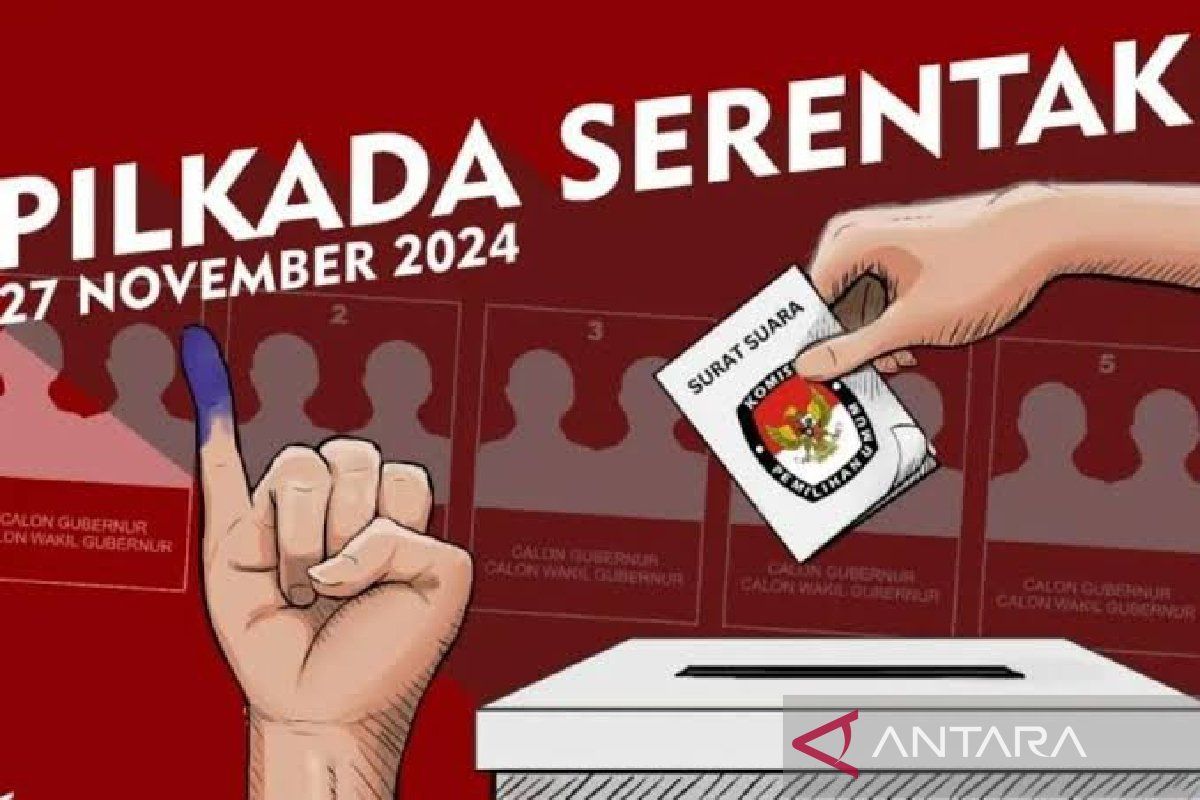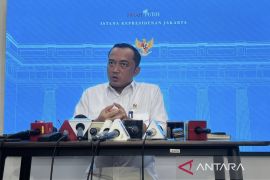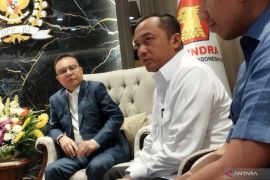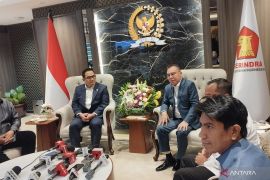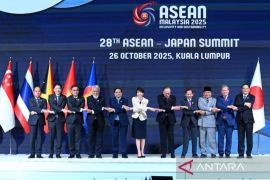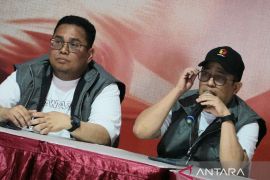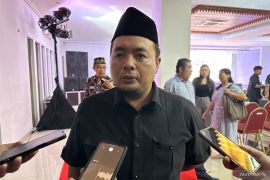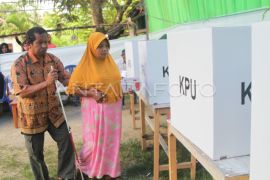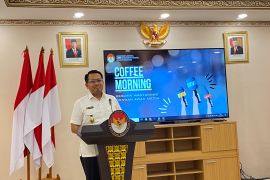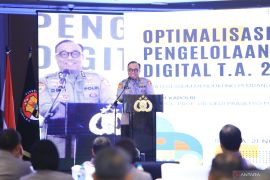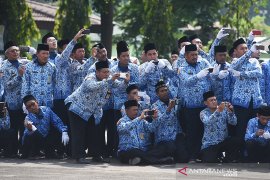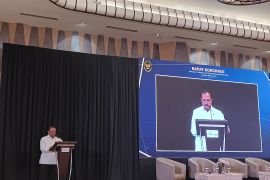The event, which will take place on November 27, 2024, will elect regional heads at the provincial and district/city levels, and it is expected to bring hope for a better future.
Not only choosing local leaders, but this year's simultaneous regional elections are also an important moment for the Generation Z (Gen Z) members, who are now starting to enter the political vortex as first-time voters.
This young generation is expected to harbor the enthusiasm and have new perspectives that can direct development policies towards innovation and openness.
Development policies set by the elected leaders are expected to open up opportunities as widely as possible for the community, especially for Gen Z as first-time voters.
Nowadays, members of Gen Z hold an important role as first-time voters since it is in their hands that the regional head elections are being determined. It is because around 40 percent of the voters included on the final voter list (DPT) are Gen Z under 27.
Despite most of them having never voted or cast a ballot and participated in election information dissemination, in this increasingly digital era, members of Gen Z find their own way to figure out more about regional head elections by utilizing digital platforms that they consider more practical and easier to access.
As first-time voters, they tend to seek information critically through various media platforms by resorting to their "most natural daily tool," which is digital technology.
Nevertheless, they still need to get assistance, both from parents and teachers, in order to tell apart valid information from hoaxes that can influence their way of thinking and making choices.
Making political choice
Sensitivity to information circulating on social media and the ability to identify misinformation and hoaxes are key for Gen Z to make the right political choices in selecting regional head candidates.
Hence, in the 2024 simultaneous regional elections, digital literacy for Gen Z plays an important role, considering the rapid flow of information that can influence their choices.
With a sound understanding of sifting out valid information and assessing the credibility of sources, this young generation is expected to be able to avoid manipulation of fake news that can harm democracy.
Through strong digital literacy, Gen Z is expected to not only become wise voters but also play an active role in creating a healthy, critical, and responsible democratic atmosphere.
Gen Z members who are critical of various types of information will become more cautious in determining their choices. Hence, digital literacy is an important key for them in the constantly changing and developing political dynamics.
Moreover, as Generation Z takes an active role in political dialogue, selecting words carefully and responding tactfully to delicate issues that can sway public opinion is crucial.
Gary Xavier, a student who will exercise his right to vote in the regional election on November 27, expressed hope that the election would bring about an improvement to the order and advance development in regions in various sectors.
"I am quite enthusiastic and will not miss my first experience as a citizen to directly vote to elect a regional head. Hopefully, the one who is elected will embrace the younger generation as having great potential to build this city," the 12th grade student remarked.
Important role
The choice to vote or not is a fundamental right of every individual. However, in the context of the 2024 regional election, Gen Z's votes play an important role.
As young and novice voters, Gen Z can be a dominant force in determining the future direction of the nation, so they are expected to use their voting rights prudently and responsibly to contribute to fighting for the democratic values that they believe in.
Hence, to attract Gen Z votes and increase the percentage of attendance at polling stations during the regional election, the government, especially through the Population and Civil Registration Service (Dispedukcapil) in various regions, continues to encourage the recording of electronic identity cards (e-KTP), especially for all 17-year-old citizens.
The Dispedukcapil in several regions is actively campaigning for e-KTP recording by also approaching schools to select students aged 17 years or older to be included on the final voter list (DPT) to enable them to exercise their political rights.
Such a measure taken by the Dispedukcapil in all regions aims to increase public participation in regional head elections across the country.
In fact, even on holidays, they still carry out mobile identity recording at designated public locations, such as city parks or town squares.
In Batu City, Malang City, and Malang District, which are located in East Java, the numbers of Gen Z and Millenial voters are quite dominant.
In Malang City, out of 651,758 voters, the age of first-time voters -- especially Gen Z (17-27 years) -- reaches 21.79 percent, or around 142,028 voters.
This figure shows that Gen Z is the third-largest group in the DPT after the Millennials (aged 28-43 years), with 211,874 voters, which is followed by Generation X (aged 44-59 years), with 183,773 voters.
In Malang District, around 50 percent of the voters are from the Millennial Generation and Gen Z. In detail, some 643,806 voters are millennials (aged 28-43 years), while 430,457 voters are Gen Z (aged 17-27 years). Out of those numbers, some 34,048 are first-time voters who can start casting their votes this year.
It means that the number of voters from the Millennial and Gen Z groups reached 1,074,263 out of a total of 2,060,576 voters in the 2024 regional election in Malang District.
Hence, it is not surprising that the vast potential of new voters from Gen Z is a determinant for regional head candidates to win the election battle.
However, their participation in visiting polling stations also depends on their understanding, knowledge, willingness, and belief in exercising their political rights since the November 27 election will be the first experience for some of them.
With the right support from various parties, including adequate political education and digital literacy, Gen Z is expected to be able to view the regional head elections as not just an obligation but as a real opportunity to be involved in positive change for the future in their regions.
Hence, the role of the General Election Commission (KPU), the regional head candidate's campaign team, and various related stakeholders is crucial in encouraging Gen Z voters to visit polling stations and exercise their political rights.
Eventually, Gen Z's active participation in the 2024 regional election not only reflects their awareness as first-time voters but is also an initial step in forming more inclusive leadership and a brighter future for Indonesia.
Related news: KPU urges young people in Yogyakarta to vote in 2024 election
Related news: Gen Z's creative potential needs to be encouraged: deputy minister
Translator: Endang S, Yuni Arisandy
Editor: Azis Kurmala
Copyright © ANTARA 2024
